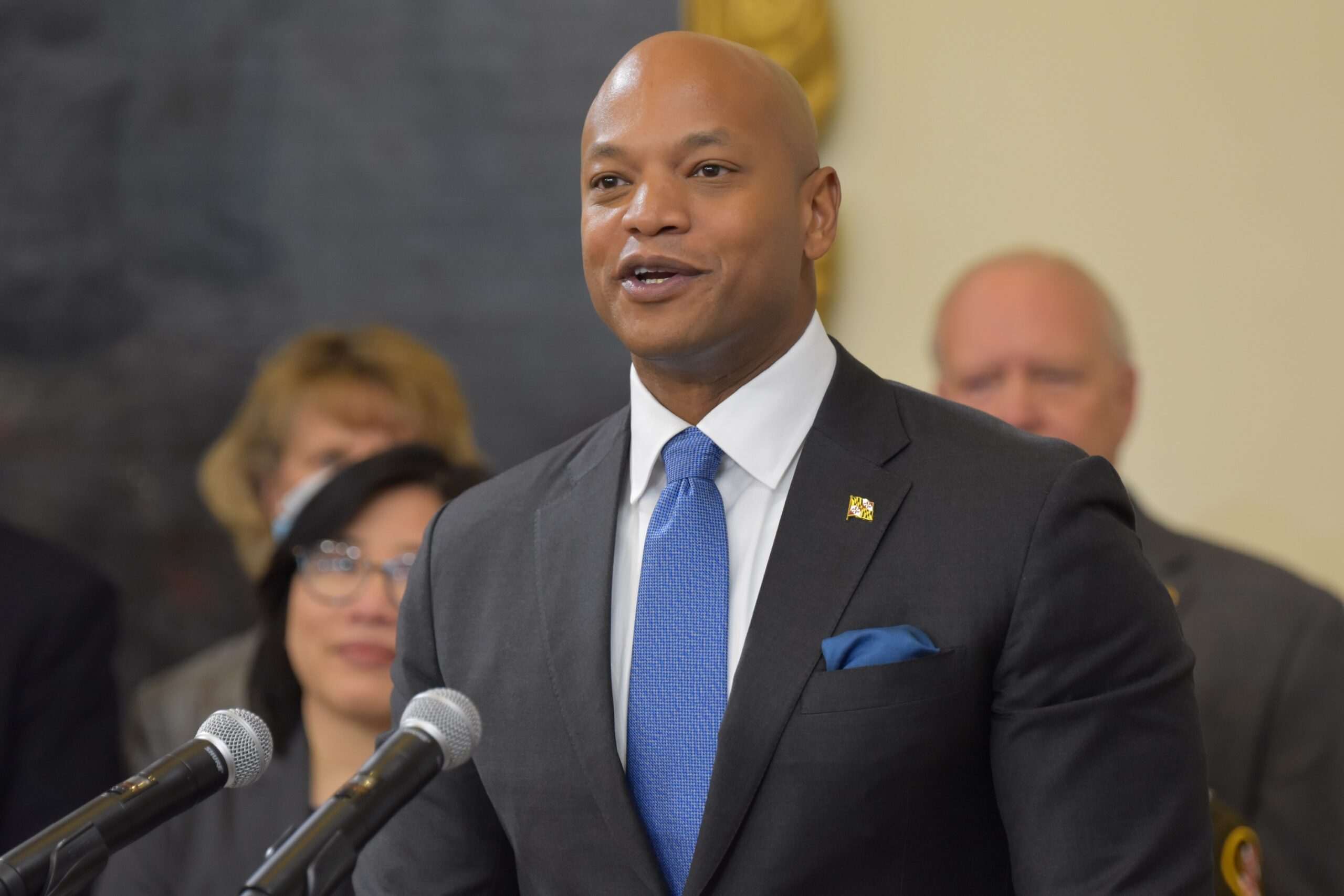Moore sends agenda to House and Senate

Maryland Gov. Wes Moore (D) delivered a 16-bill legislative package Wednesday for the second session of his term.
The governor’s legislation falls into four areas — public safety, affordability, making the state more competitive, and public service — that were highlighted in his recent budget announcement.
“This legislative agenda marks the next chapter in our work to leave no one behind. This year, we remain laser-focused on the issues that matter most to Marylanders — with sixteen bills centered on making Maryland safer, making Maryland more affordable, making Maryland more competitive, and continuing to make Maryland the state that serves,” Moore said in a statement.
Public safety:
- The Victim Compensation Reform Act — Senate Bill 471 and House Bill 575 — would provide faster access to money for immediate needs, including funeral and emergency relocation expenses.
- The Growing Apprenticeships and the Public Safety Workforce Act — SB 470 and HB 597 — would reform the state’s existing apprenticeships policies to create a more viable pathway to law enforcement. It requires the creation of a policy for police officer wellness programs. The bill would create a workgroup focused on recruitment, training and retention policies.
- The Center for Firearm Violence Prevention and Intervention — SB 475 and HB 583 — sets aside $10 million to create a center focused on a data-driven public health approach to preventing gun violence, designed to work with local governments, hospitals and community-based violence intervention programs.
Improving affordability:
- The ENOUGH Act — SB 482 — sets aside $15 million to combat concentrated poverty specific to each community. A House version was not yet available.
- The Housing Expansion and Affordability Act — SB 484 and HB 538 — incentivizes the construction of highly targeted new housing. The bill proposes modernizing local land use law; expedite and simplify approval for transit-oriented development; allow for development on former state-owned complexes; and allow housing development by nonprofit organizations. Increased density would be allowed under certain conditions.
- The Housing and Community Development Financing Act — SB 483 and HB 599 — would establish the Maryland Community Investment Corporation, which could compete for federal funding through the New Market Tax Credit program. The federal aid would target low-income communities and community development projects across the state. The bill also seeks to improve the Strategic Demolition and Smart Growth Impact Fund.
- The Renter’s Rights Stabilization Act — SB 481 — is an omnibus bill that creates an Office of Tenant Rights in the Department of Housing and Community Development responsible for providing renters with information about their rights under law and creating a tenant’s bill of rights; attempts to lower evictions by increasing the eviction filing fee and preventing it from being passed on to renters; mandating the reduction of security deposits from two months rent to one month; gives renters the right to purchase their home if it’s being sold; prioritizes families with children under 5 years old and pregnant women in the state’s new rental voucher program. A House version of the bill was not yet available.
- Mental Health Emergency Evaluation and Involuntary Admission Procedures and Assisted Outpatient Treatment — SB 453 and HB 576 — is an omnibus behavioral health bill that would allow court-ordered outpatient treatment for individuals with severe mental illness who are not compliant with treatment and whose lack of compliance poses a potential danger to themselves or others. The bill also addresses peace officer emergency transport, the scope of practice for psychiatric nurse practitioners, and the required admission of emergency patients.
Improving state competitiveness:
- The Pava LaPere Legacy of Innovation Act — SB 473 and HB 582 — would create two programs within the Technology Development Corporation: The Pava LaPere Innovation Acceleration Grant Program, to provide student tech startups with early-stage capital, and the Baltimore Innovation Initiative, which would provide access to capital and wraparound services for technology startups associated with colleges or universities that are located within the Baltimore Metropolitan Statistical Area.
- The Critical Infrastructure Streamlining Act — SB 474 and HB 579 — proposes streamlining the regulatory process for approval of industries that rely on backup power generators such as data centers.
- The Transparent Government Act — SB 472 and HB 581 — would require all state agencies to establish and publicize projected timelines for licensing and permitting applications and publicly report the results.
Public service:
- The Maryland Road Worker Protection Act — SB 479 and HB 513 — would increase work zone speed camera fines from $40 to $290 and impose a $1,000 fine for offenders with three or more citations. The bill also eliminates the need for cameras to be manned. Fines collected would fund highway and work zone safety programs. The recommendations were part of a workgroup created after the death of six highway workers in Baltimore County last spring.
- The Protecting Election Officials Act — SB 480 and HB 585 — creates a new misdemeanor charge in state election law for threats against election officials or their families.
- The Caring for Public Employees in Safety Professions Act — SB 476 and HB 584 — adds thyroid, colon, and ovarian cancers to illnesses covered by workers’ compensation for firefighters.
- The Families Serve Act — SB 478 and HB 604 — incentivizes private businesses and state governments to establish hiring preferences for military spouses.
- The Time to Serve Act — SB 477 and HB 580 — The bill provides 30-days of leave for state employees who also serve in the National Guard and Reserves.




 Creative Commons Attribution
Creative Commons Attribution